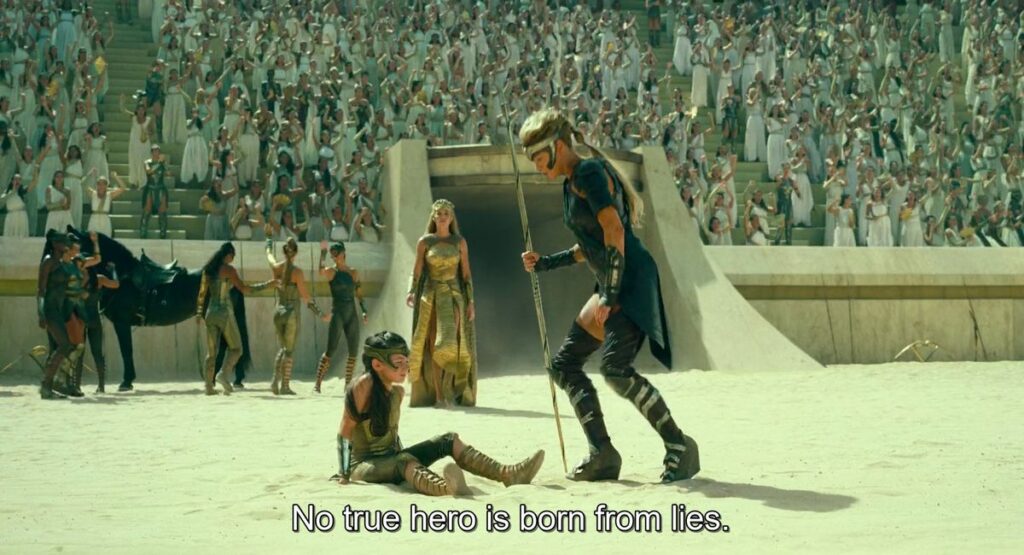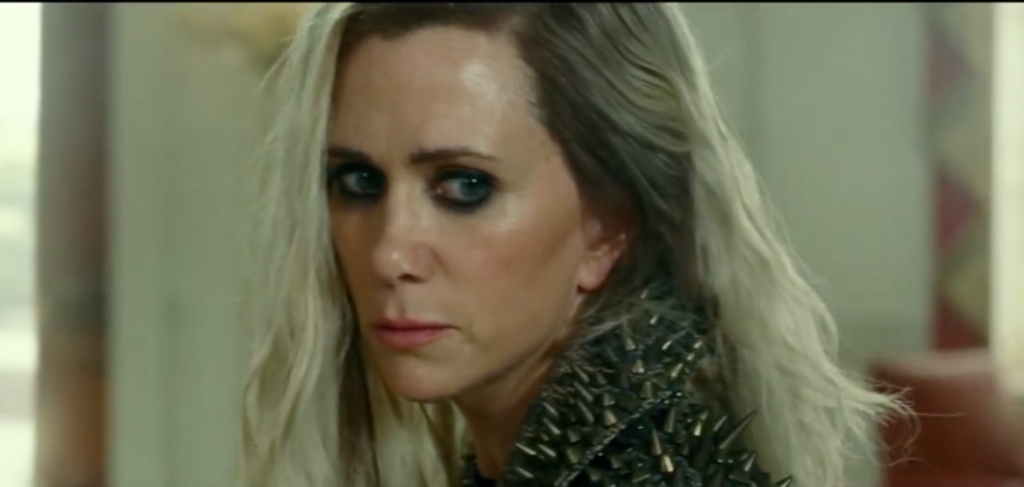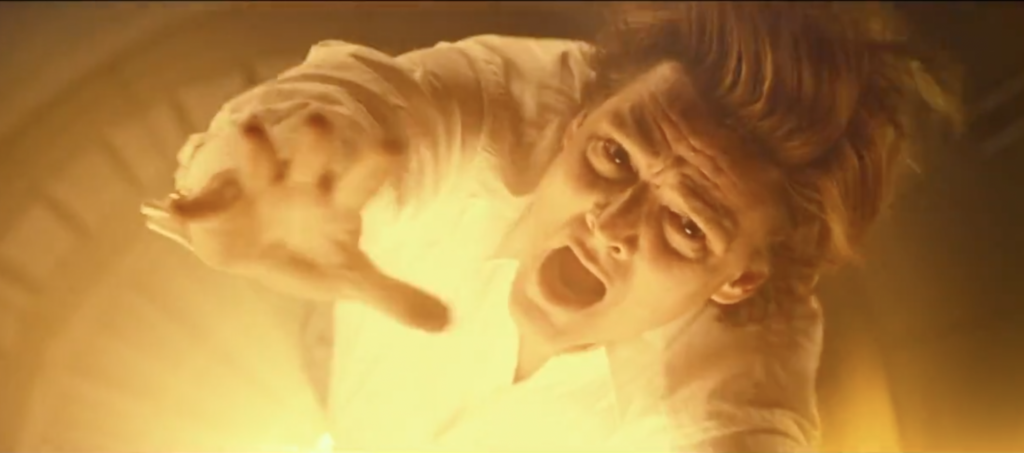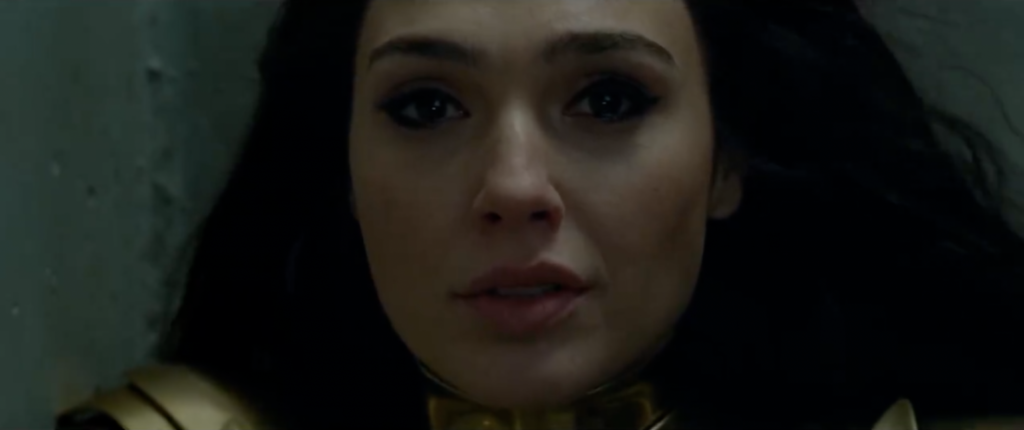Wonder Woman 1984 Was Not About Being Careful What You Wish For – It Was About Accepting The Truth
I watched Wonder Woman 1984 again last night so I could make some notes for my critique and expected to focus on the movie’s flaws, but I found myself liking it even more. It had a surprising amount of depth in its story structure that I found very resonating, relatable, and moving.
Many viewers assumed the moral of the story was that you should be careful what you wish for, but it’s really more layered than that. The story was a parable with a lesson – one that Diana says in the opening monologue she wished she had learned from as a child. Antiope plainly set out that lesson in her lecture to young Diana after she was disqualified from the contest.
Antiope said:
“You took the short path. You cheated. That is the truth. That is the only truth and truth is all there is. You cannot be the winner because you are not ready to win and there is no shame in that. Only in knowing the truth in your heart and not accepting it. No true hero is born from lies.”

That dialogue sets up the premise for the entire movie and leads straight into Max Lord telling people “you can have everything you always wished for” without “working hard for it.” You just have to want it (wish for it) – the exact opposite of what Antiope said to Diana. He was offering the win without the price, which is a lie no hero could be born from. All 3 of the main characters faced the same parallel moral dilemma – finding their lives were made worse by running from the truth in pursuit of a wish that had too high a cost.
Young Diana wanted to be the winner and the cost of taking the literal short path was that she became a loser. The truth she needed to accept was that she was not ready to be a winner.
Barbara wished she was someone she wasn’t and the cost of taking the short path was losing the good person she was. The truth she needed to accept was that her ideal self became cold, brutal, and desperate.

Max wished he was a powerful man and the cost of taking the short path was seeing his horrified son about to be nuked with the rest of the world. The truth he needed to accept was that he was a “pretty messed up loser guy who made terrible mistakes” and was not ready for any kind of power.

Diana wished Steve was still alive and the cost for taking the short path was her strength (figurative and literal). The truth she needed to accept was that he was gone and that happiness could still exist in the world in “so many things” even without Steve in it. That’s why she says “so many things” twice in the final scene. She was finally able to rise above her grief…like the red star balloon, which was a metaphor for rising up and taking flight, which she literally does in the next scene.
Everything was brought together perfectly in her monologue to Max during the climax when she had a second chance to bring Steve back. She said:
“I’ve never wanted anything more. But he’s gone. And that’s the truth. And everything has a price. One I’m not willing to pay. Not anymore. This world was a beautiful place just as it was and you cannot have it all. You can only have the truth. And the truth is enough. The truth is beautiful. So, look at this world and look at what your wish is costing it. You must be the hero. Renounce your wish if you want to save this world.”
Then she faces the camera and speaks directly to the audience when she says:
“I wasn’t talking to you. I was talking to everyone else. Because you’re not the only one who has suffered. Who wants more. Who wants them back. Who doesn’t want to be afraid anymore. Or alone. Or frightened. Or powerless. Because you’re not the only one who imagined a world where everything is different. Better. Finally. A world where they were loved … and seen … and appreciated. Finally. But what is it costing you? Do you see the truth?”

That’s the big question the movie is asking the audience to consider – not to be careful what you wish for, but to look at yourself honestly and see what you’re becoming in pursuit of your wish.
The typical message we receive from society is that we can be everything and have everything if we want it badly enough. But this story told the harshest truth: You can’t. That is a lie. Because sometimes the things you want come with too high a price and they’re not worth the kindness, the inner strength, the family, or the soul that you have to sacrifice to achieve them. Are you damaging your own “world” by ignoring what’s true in pursuit of a wish? If you are, then you’re not going to win in the end and there’s no shame in admitting that. The shame would be in continuing to lie to yourself and refusing to renounce that wish in the face of all the destruction it’s causing.
To be the hero in your own story, you sometimes have to be able to walk away from the things you wish for the most in order to save your “world.” But beyond that, you also need to appreciate the truth in the things that remain…in spite of the times when you feel like you might not have the one thing you asked for that you felt you deserved the most.
Wonder Woman 1984 certainly had its flaws. Some of the special effects with Diana running could have been better. The mall sequence dragged on too long with not enough payoff. Barbara wasn’t used enough as Cheetah. And implying that Diana slept with Steve while he was in someone else’s body is something that should have been left on the cutting room floor.
For me, however, the sign of a good movie is that it does what parables, mythology, and religion aren’t often allowed to do in modern times. It takes you on a journey, asks you important questions, and tries to teach you something without being heavy-handed. That’s where Wonder Woman 1984 succeeded far more than most superhero movies. There’s a lot other filmmakers could learn from both Wonder Woman films in terms of how to get their messages across.
Wonder Woman is different than most superheroes in that she works best when she’s written as contemporary mythology. She doesn’t always win by beating someone to a pulp. Sometimes, she wins by teaching her enemy (and the audience) an important lesson and this story captured that perfectly.

No responses yet